What is a Sworn Translation?
Sworn translations are often required or recommended for documents used in legal proceedings and in certain other circumstances.
This type of translation is not needed in the United States as often as it may be in other countries, but if you are submitting official papers in a foreign country, you should know what a sworn translation is.
A sworn translation results when the translator swears an oath before an officer of the court, giving their word that their translation is a true representation of the original document in the target language. This gives the translation legal equivalence to the original document and allows the recipient of the translation to have confidence in the accuracy of the translation.
In some countries, translators must be listed in an official registry in order to perform sworn translations. In the United States, there are no special requirements for doing a sworn translation as long as the translator swears the oath of accuracy before an officer of the court or a notary public. The same civil and criminal responsibility for accuracy applies to a sworn translation in the U.S. as it does anywhere else: the translator must answer for any inaccuracies in the translation, including in a court of law.
This raises the question of whom to trust with a sworn translation if you need translation services in the United States. Your best rule of thumb is to use a translator or translation agency with a solid track record for certified translation services over the long term.
Espresso Translations is just such a translation agency, with thousands of customers over the years who have been happy they trusted us with their critical document translation needs. Our record shows us providing our clients with the best services and support for sworn, certified, and legalized translations for financial and legal documents. Our team of qualified legal translators is here to offer you satisfaction with any translation service from or into more than 150 languages.
If you need a sworn translation specifically of documents like birth certificates, read on to learn further details.
Also Read: What is a sworn translation?
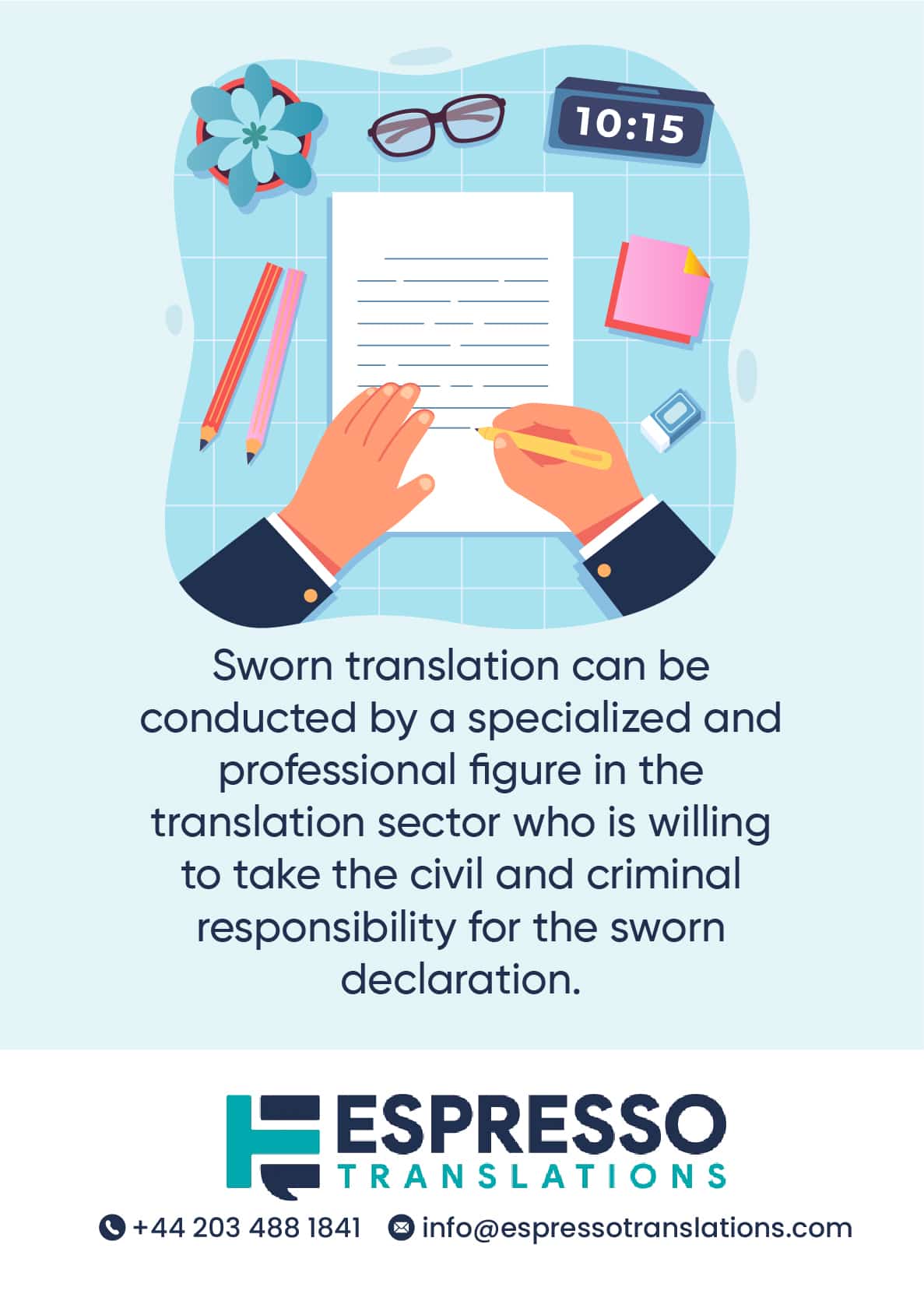
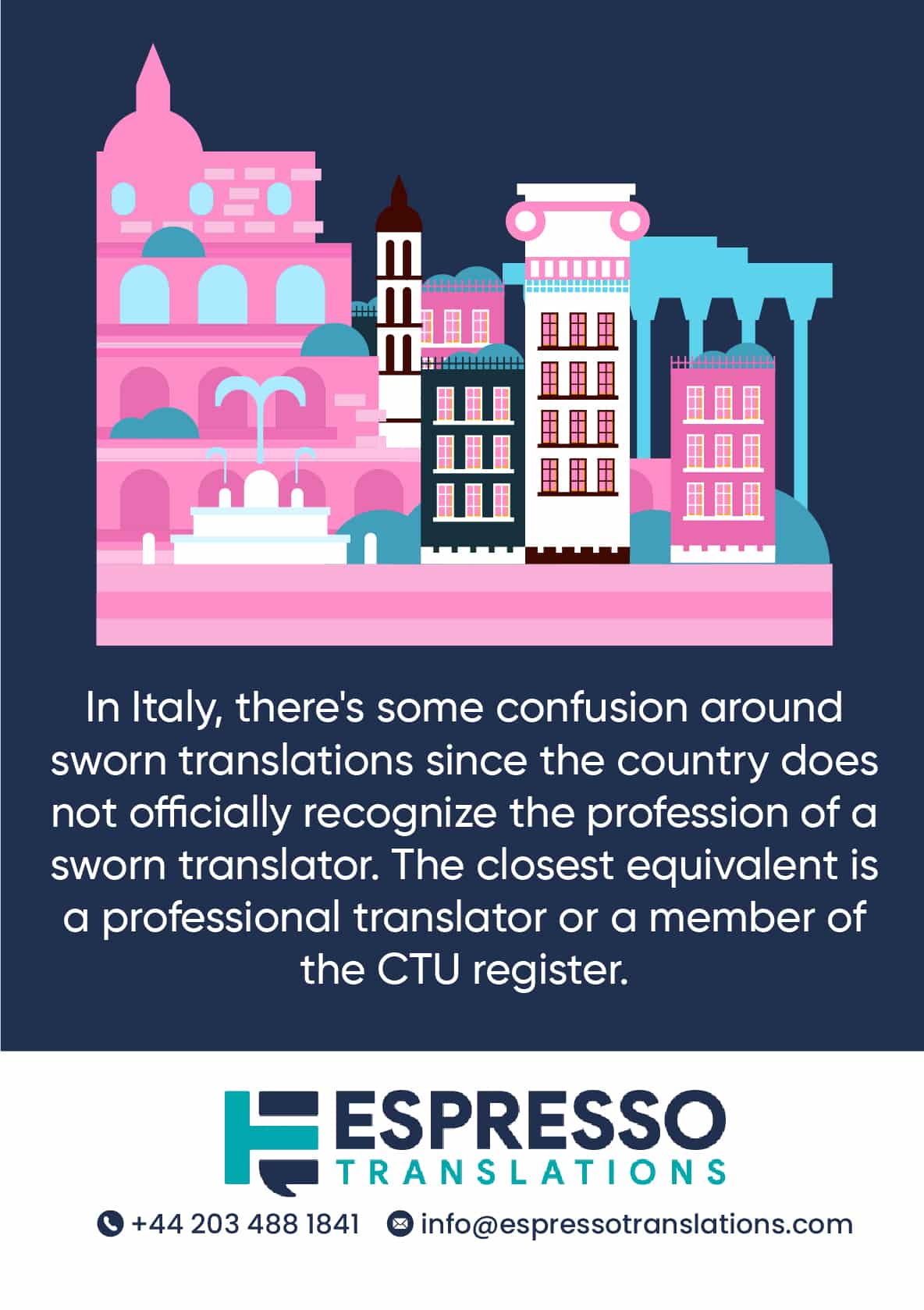
Who can officially translate a document?
Although requirements vary by country, a sworn translation should be provided by a translation professional who specializes in the field in question and is also willing to assume liability for their sworn statement.
The translator must match the degree of formality of language and the precise technical terms used in the original document, ensuring completeness down to similar formatting. The sworn statement bears the seal and signature of the translator and the presiding judicial officer, and it is then attached to the translation.
If you are unsure of what you need, Espresso Translations is always happy to advise clients on the requirements for sworn translations in various countries.
To start, we can assert that some courts only accept translators who are correctly registered in their registry. Some countries (Brazil is one) will only accept legalization by translators in the country where the target language is spoken.
Another point is that the oath required for a sworn translation must only be made before the proper official. In other words, a translator cannot swear an oath on their own or before just anyone. They must make an appointment and appear before an official. To save yourself time and effort, rely instead on a trusted translation company like Espresso Translations, with a long history of providing the most accurate translations.
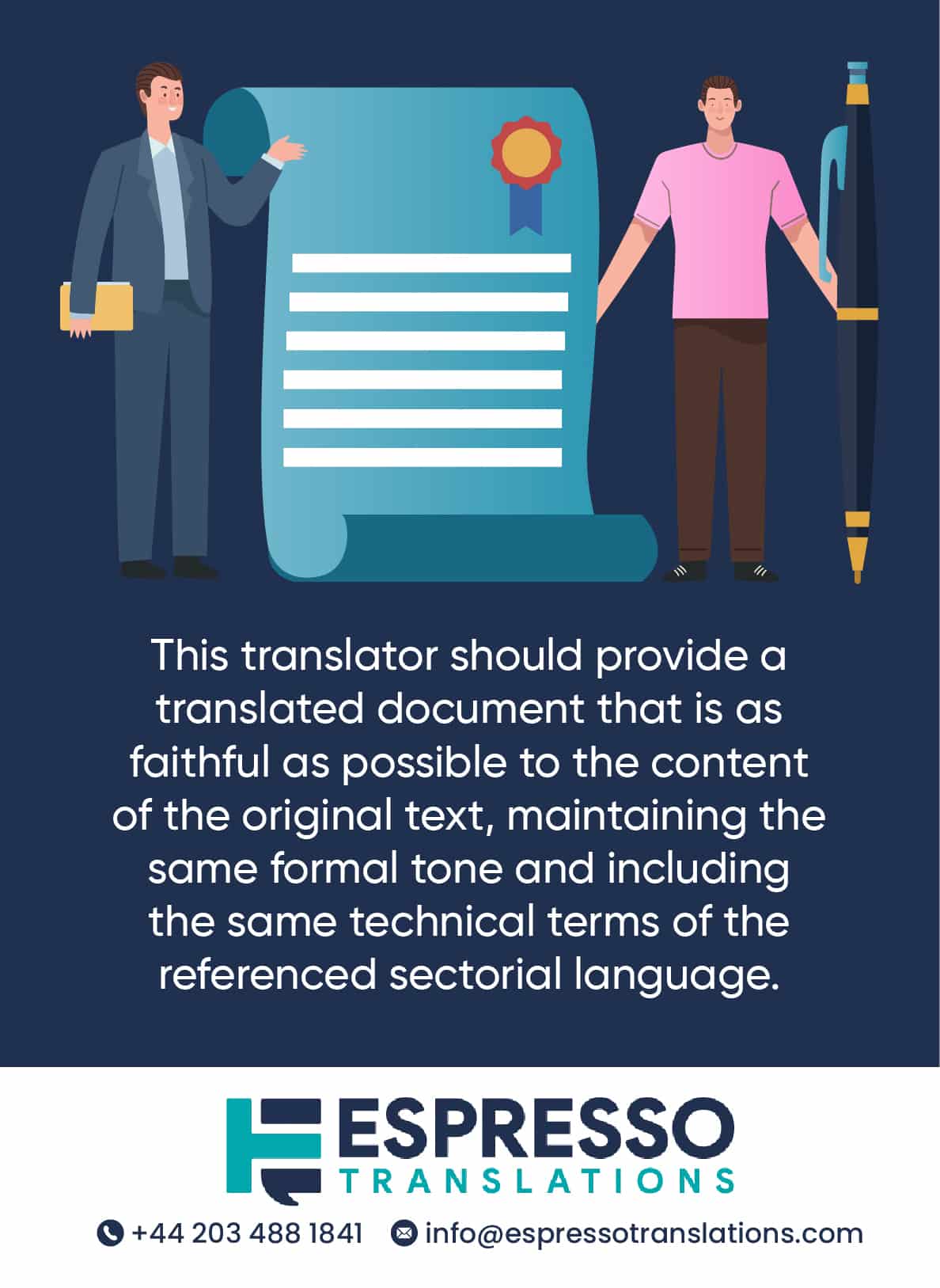
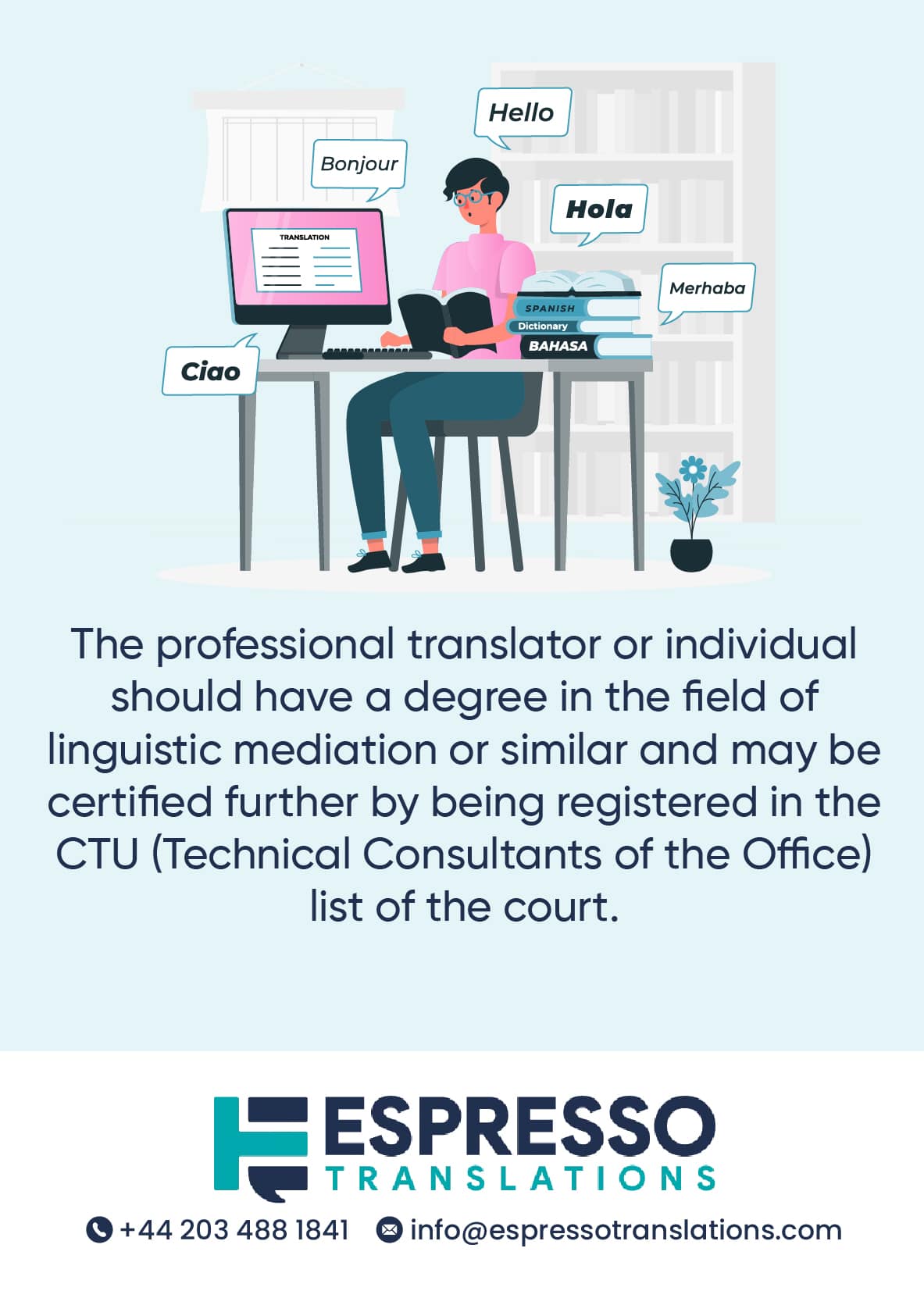
When do you need a sworn translation service?
Sworn translation services when translating official documents like birth, marriage, and divorce certificates; criminal records; applications for citizenship; legal contracts; academic degrees and diplomas; driver’s licenses; and notarized public deeds and documents.
Because of their important consequences, these translations include a stamp and a translator’s statement taking responsibility for the details, accuracy, and consistency of the translated document when compared to the original document.
Please note that you will rarely be required to provide sworn translations of medical, advertising, scientific, or general-use documents.
Also Read: What is the difference between certified and sworn translations?
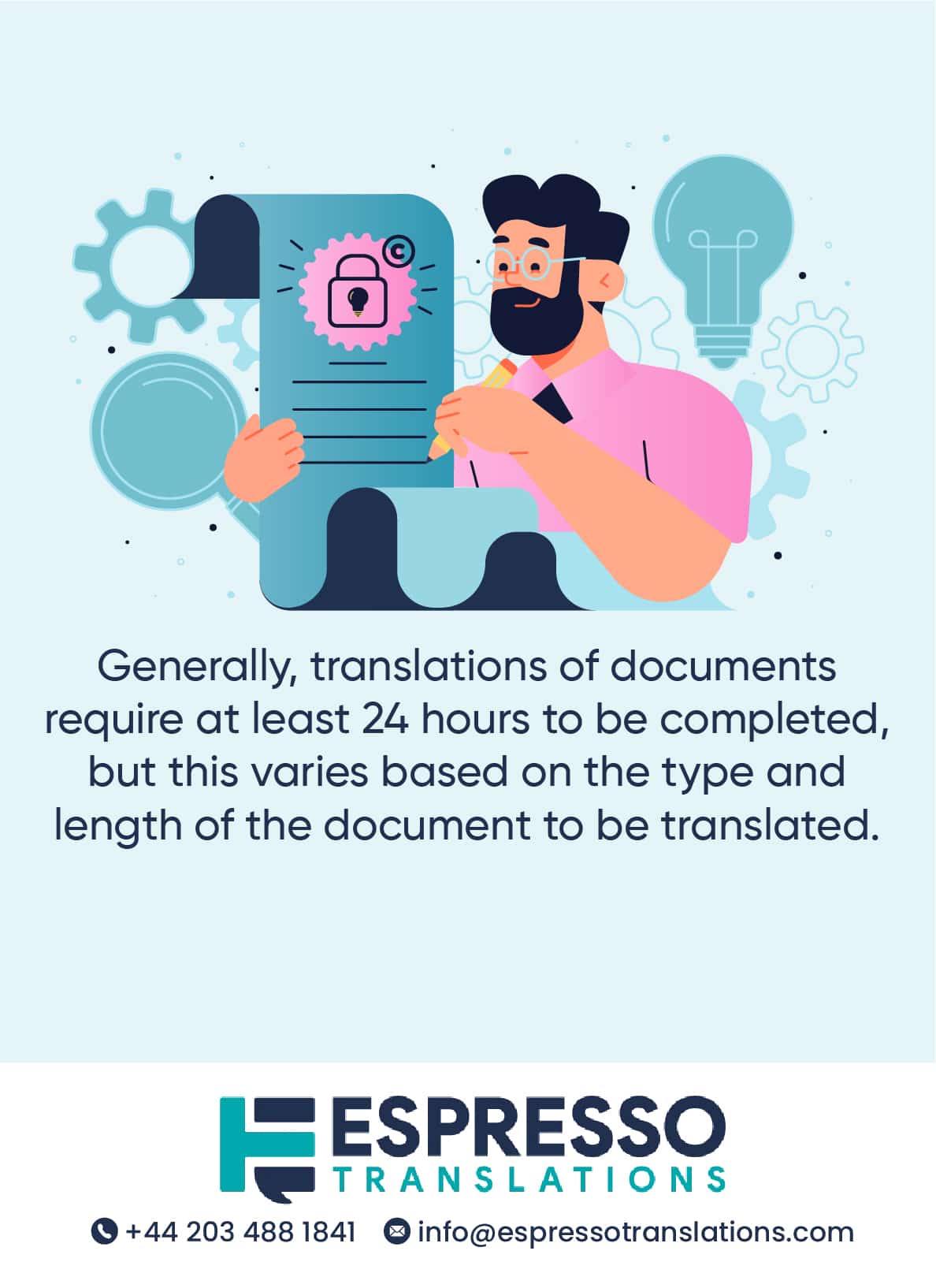
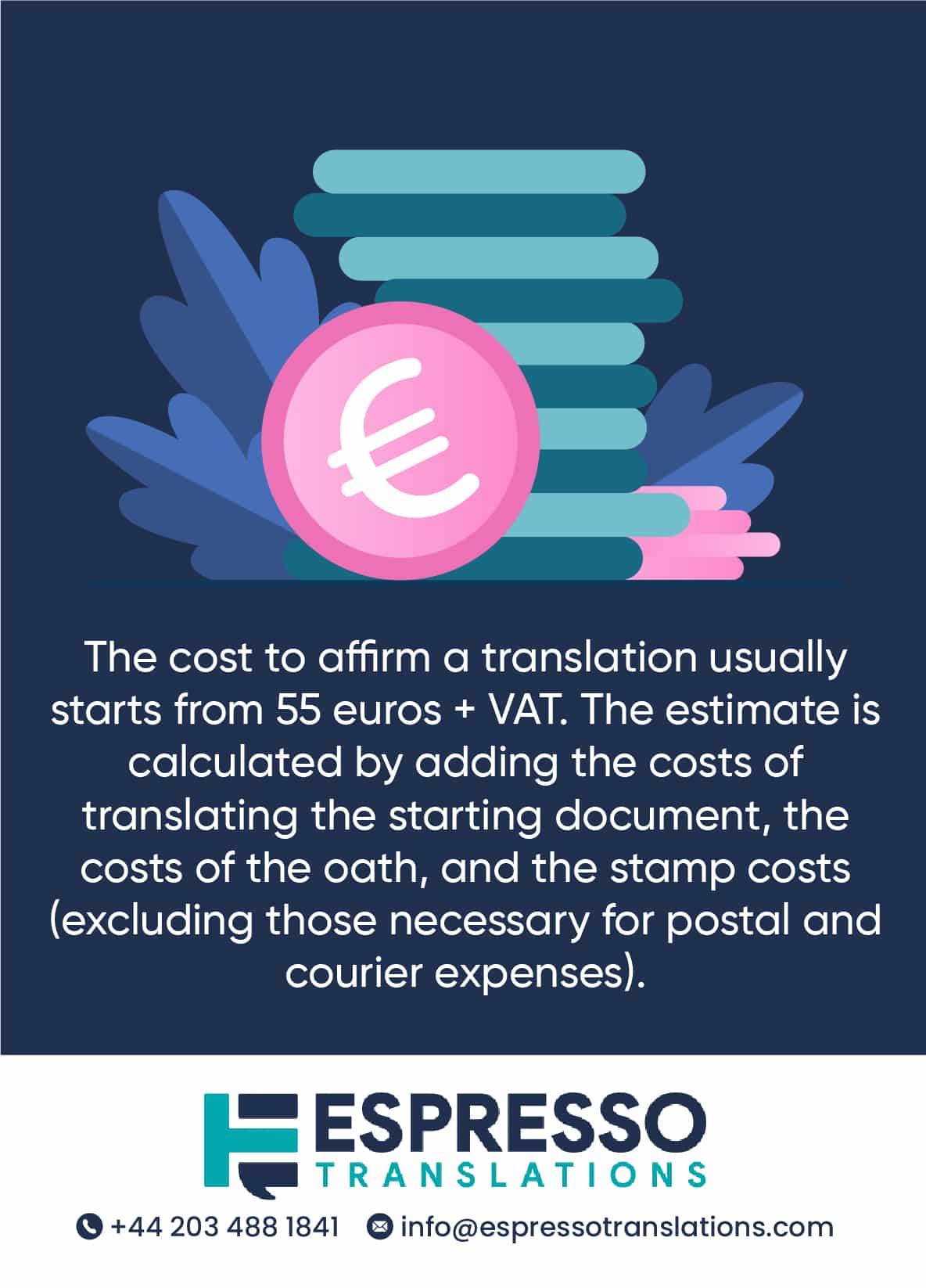
What are the requirements for sworn translation?
A translator creating a sworn translation should download the oath form from the nearest Sworn Translations Office or from the website of the court with jurisdiction.
The translator must provide a copy of the original document. Assuming the translator presents valid identification along with the form containing their declaration, contact information, and credentials, they can swear the oath before the judicial officer. Then everything is stapled together: the original, the translation, and the translator’s declaration. Once this has been assembled, the translator signs and affixes their stamp (if available) to each page.
The translator must also pay a fee for this service, and the fee varies by jurisdiction. Then the sworn translation is ready for delivery and use. If any parts of the sworn translation (original, translation, and sworn oath) are removed or even detached, the work ceases to be a sworn translation.
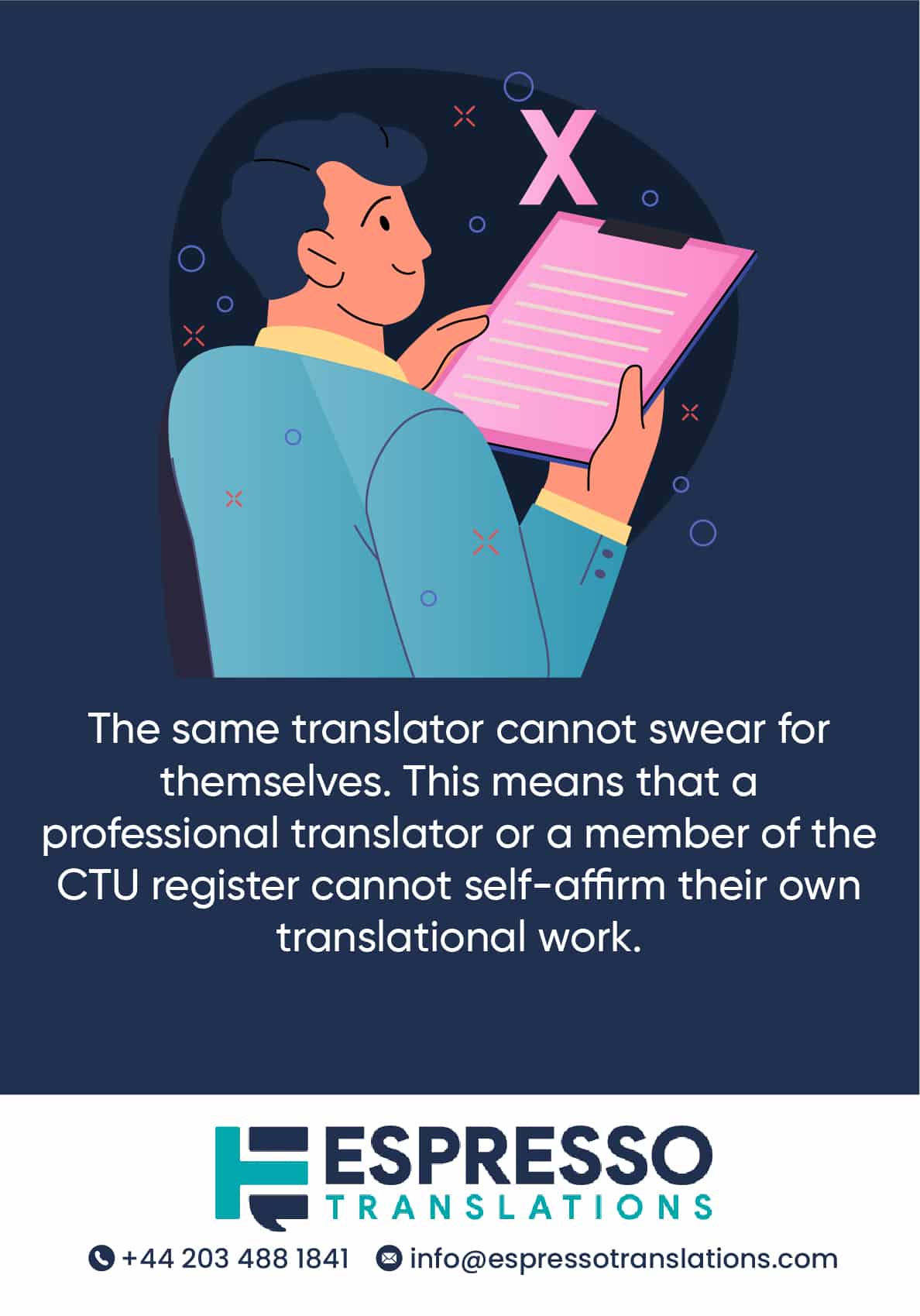
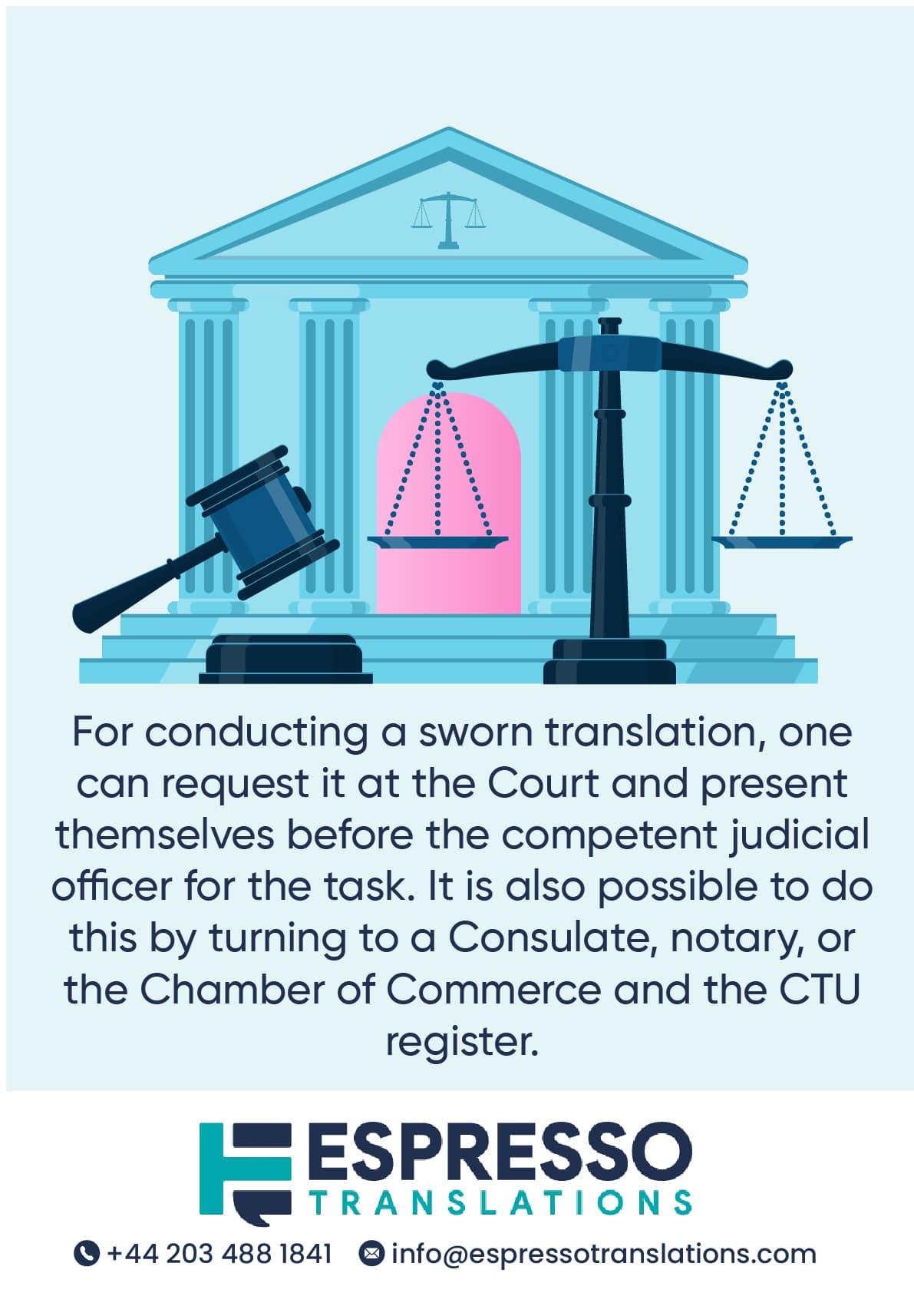
Where can I translate official documents?
To make a sworn translation of an official document, the translator makes an appointment with the relevant court to appear before a governmental officer to swear the oath.
At the appointed time, the translator recites the oath taking responsibility for having translated the document fully and faithfully into another language. Then the report is drafted before the officer, who signs it and legalizes it. If the country in question is a party to the Hague Convention, the officer will stamp the report with a special apostille.
Finally, the officer registers the sworn translation package, and the translation becomes legally valid as a version of the original document.
Also Read: Official translation services
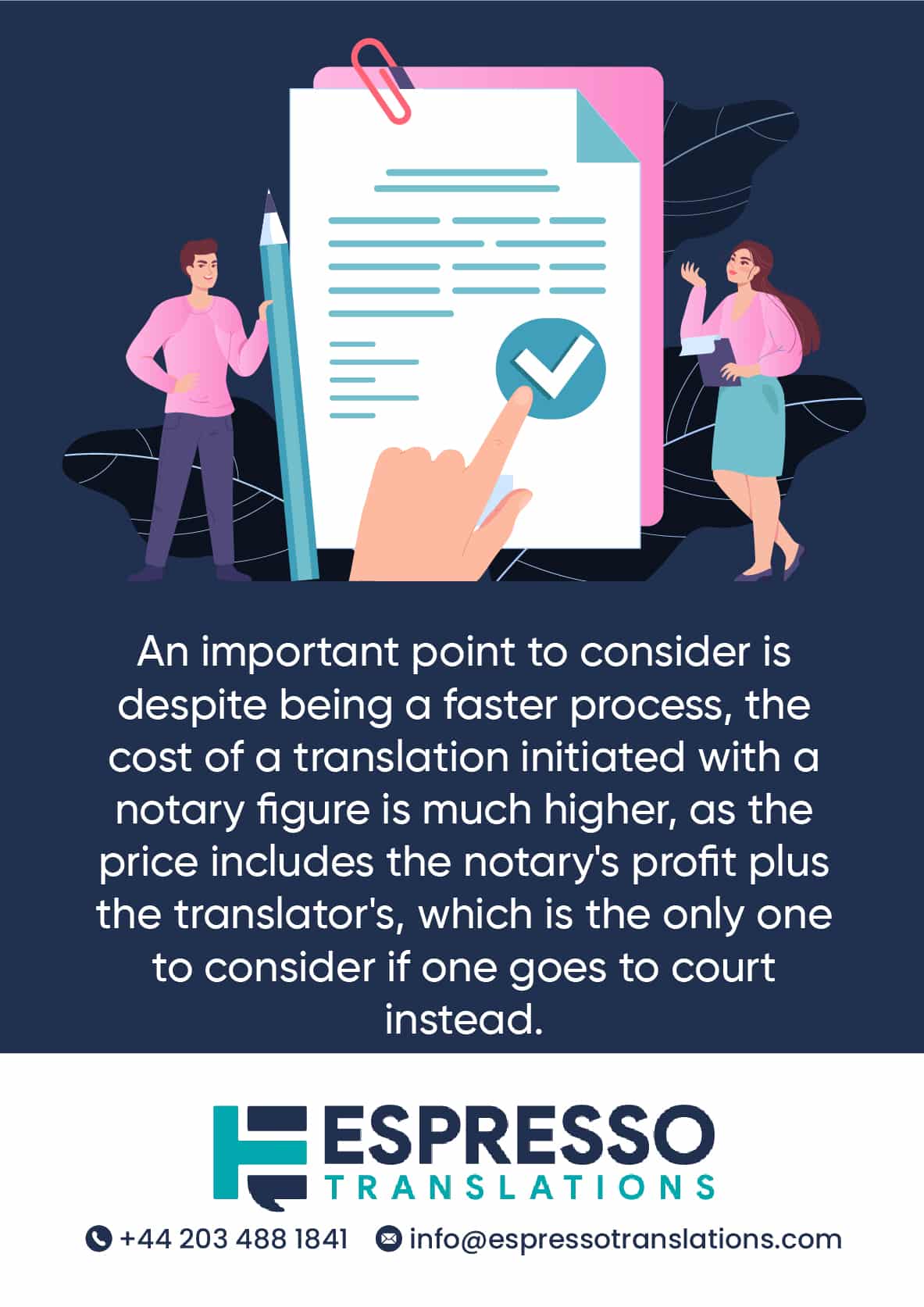
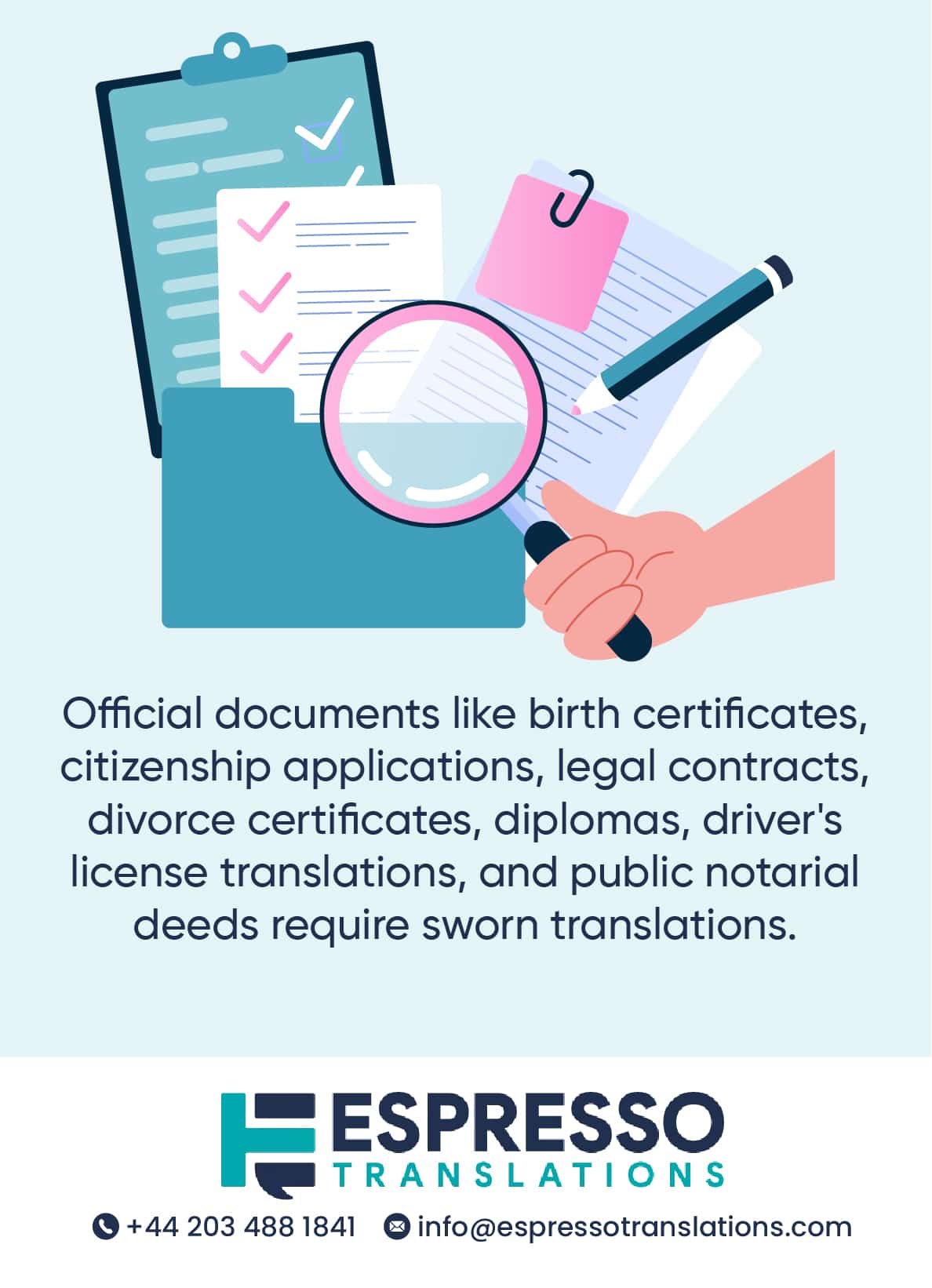
How much does a sworn translator charge?
The price for a sworn translation usually starts at $55 plus tax/VAT. This includes the cost of the translation, the time needed to swear the oath, and any stamp duty charged for the service. If postal or courier services are requested, these will be added to the total cost as well.
A number of factors may influence what you pay for a sworn translation. These could include unusual languages or language combinations, lengthy documents, special formatting, rush service charges, and court fees and taxes.
Instead of having to worry about all the details, you can entrust your entire translation project to Espresso Translations, where we have extensive experience in sworn and certified translations for use in the United States and almost anywhere else in the world. Our rates for certified or sworn translations are competitive, and our customer service is second to none.
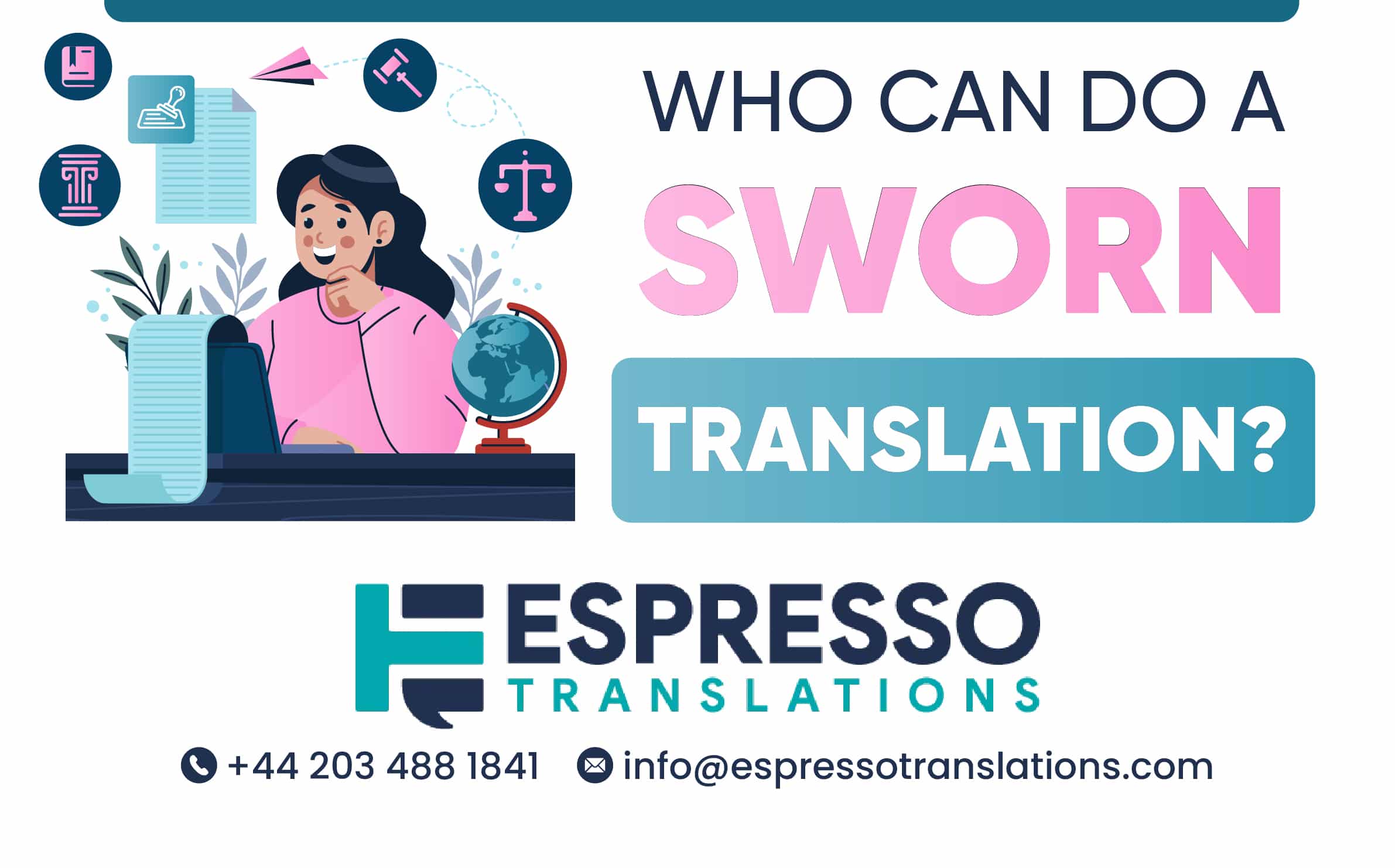
FAQ
What is a legally sworn translator?
A sworn translator is a professional translator with the appropriate levels of training, a lot of experience, and expertise in financial and/or legal terminology to create translations that are reliably accurate in every respect. In addition to all this, a sworn translator has met the regulations and requirements to be listed in a registry and has taken an oath as a sworn translator with a specific court or government agency.
Is a sworn translation a certified translation?
Certified and sworn translations are similar in that they both include a statement that provides a guarantee of quality. They are different in that only the sworn translation has the same legal validity as the source document. With a certified translation, the linguist takes full responsibility for the accuracy and completeness of its representation of the original document, although the translation has no legal value.
How do I become a sworn translator in the USA?
Sworn translations are typically not needed for official procedures in the United States. If you are in the US and need a sworn translation for a procedure in another country, the first step is to determine the requirements of the target country, as different countries have different criteria for sworn translations. If the country in question requires sworn translators to be listed in a registry, you will have to gain the credentials and follow the steps required to become listed.
Unless you are a translator who intends to specialize in sworn translations for use in a particular country, it may make more sense for you to hire a professional local translator who is already recognized and accepted by the legal authorities. If you are unsure of how to find such a person, you always have a convenient alternative: hiring a sworn translation agency like Espresso Translations that can provide you with a professional translation that is duly sworn as needed.

